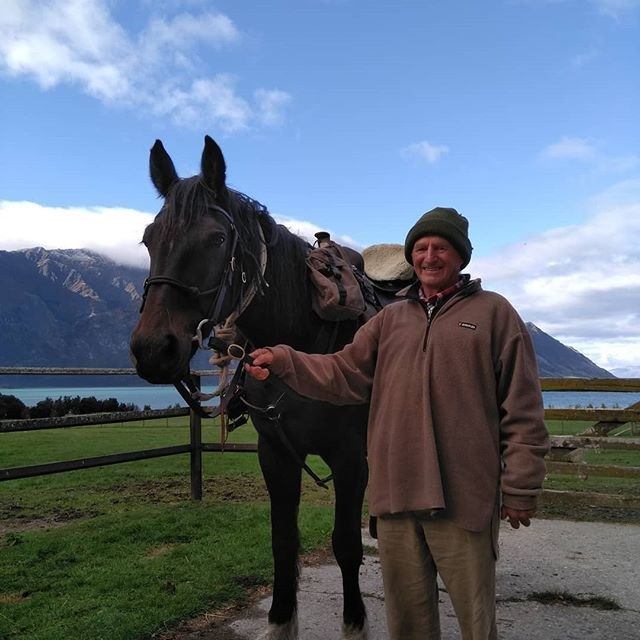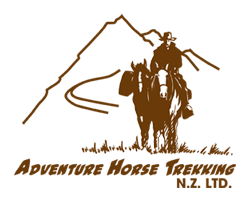Our horses are our whanua, “family”
Our horses are our whanau “family” we ask that you please, treat them with respect at all times.
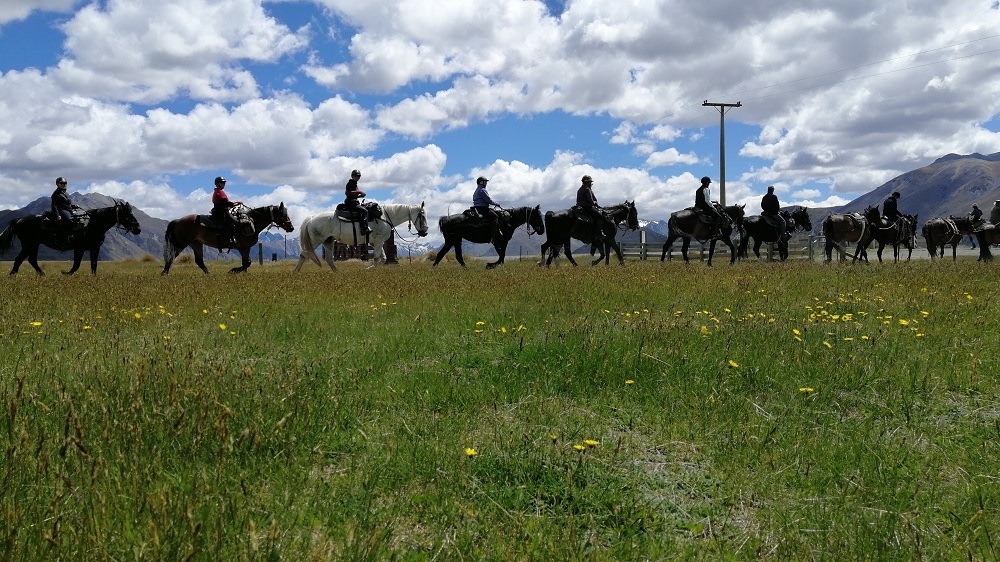
Riding horses can carry inherent risks. We encourage you to have a read through these reminders of best practice around horses, which we hope are helpful to all, including those who have been riding many years.
When you book to ride with our company we rely on the information you provide us with to match you with the right horse and trail. It is therefore, very important that you are open and honest about your riding.
The description you provide of your riding experience will be utilized to match you with the correct horse.
Whilst riding or in the vicinity of horses, you must comply with the instructions of the Trail boss/ wrangler.
If you have any doubt that you’re riding skills or fitness are not of the level required for your chosen adventure trail, please contact us to discuss.
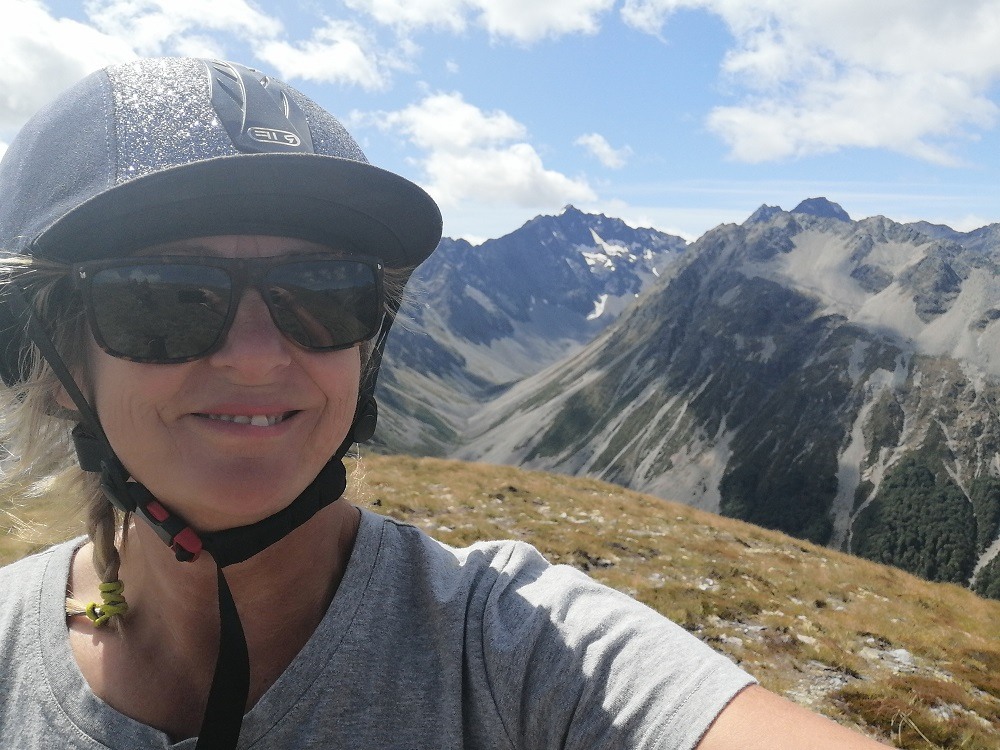
Head gear
For your own safety, we recommend that you wear a hard hat that meets AS/NZ 3838:2006. It is important that your hat fits properly.
Some riders choose to wear a lightweight endurance style hat.
Sun Protection
Wide brimmed covers in a range of materials which are designed to fit over a skull cap are available to purchase. There are a number of places wholesalers where you can obtain such a helmet. Here is one example
If you have your own helmet we would ask you to bring that, you know that it fits perfectly.
Even if your guide or other riders are not wearing a hard hat, this should not influence your decision. It’s your head!
Helmets are compulsory for novice riders.
Basic Safety Guidelines for Handling Horses and riding on farms
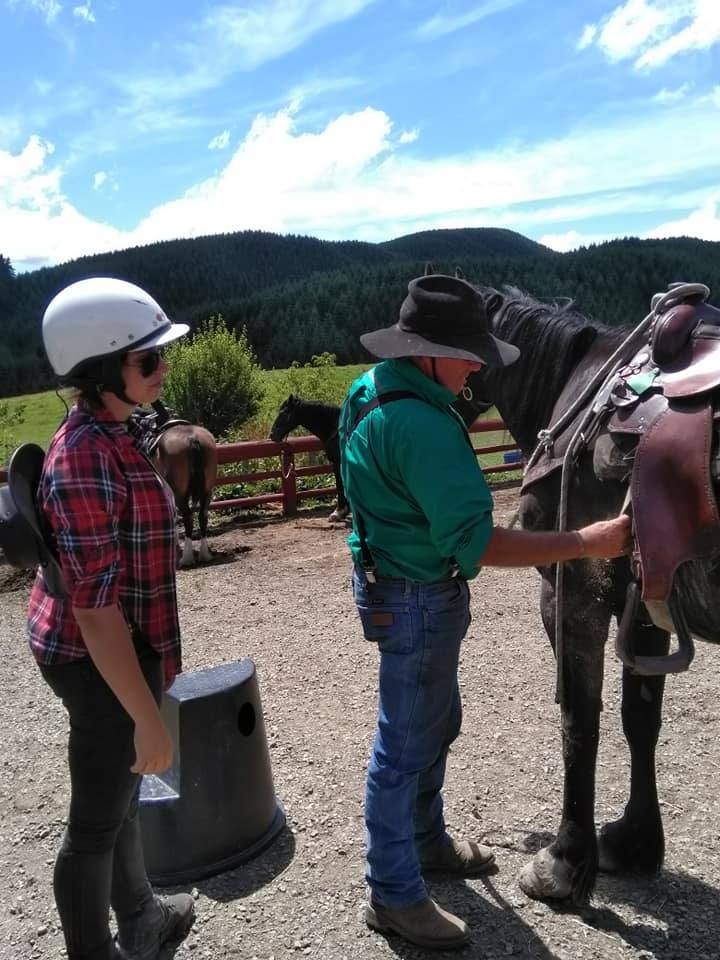
Horses can be unpredictable and accidents can happen. However, if safety precautions and common sense are used then serious mishaps can be prevented.
Always approach the horse from the side and speak to let him know you are there. (The horse has two ‘blind’ spots – directly in front and behind him/her.
Don’t make loud noises or sudden movements around horses.
When walking round the back of the horse leave plenty of room.
When working around the horse (i.e. grooming or tacking up) stay close to the horse so that, in the unlikely event that the horse kicks, you will not receive the full impact.
Never wrap the lead rope or reins around your hand.
When leading the horse into a stable, always turn the horse towards you at the door before taking the head collar off.
When turning a horse out in a field or paddock, always turn the horse’s head towards the fence before taking the head collar off. If more than one horse is being turned out, leave plenty of room between each horse and ensure everyone removes the head collars at the same time.
If you are not happy working around the horse (i.e. picking up feet), or are unsure of what has been asked of you (i.e. tacking up or untacking), ask us for help.
Always wear sensible footwear around horses.
Remember that jewelry (especially earrings, rings and necklaces) can get caught and could cause injury.
Always make sure loose clothing is buttoned / zipped up and cannot flap and frighten your horse.
Basic Riding Safety & Etiquette
- When you are riding remember you are more than a passenger. Stay aware of your horse, what you are doing and where you are riding at all times.
- Always listen to the guide’s instructions follow their instructions at all times. They are all about your safety.
- Never ride past the guide, unless he/she has said you may do so. Stay at the pace set by the guide.
- Wait until all riders are mounted and ready before riding off.
- When riding in a group, be aware of the other riders and pack horses. Do not allow your horse to get too close to the horse in front or you might get kicked.
- Pack horses always go out front, this is so that no one becomes tangled in the lead ropes. So please, allow the pack horses space to move out front as you start out each day.
- Do not cut in front of other horses, especially when cantering and jumping, or pass them at speed.
- As a courtesy to others, give verbal warnings for dangers (i.e., holes, low branches) and pass back messages clearly that the guide may have given.
- Please do not use another rider’s leg or horse as a rubbing post for your horse as this could result in biting and kicking.
- Horses can be startled by sudden movements. Don’t throw things (i.e., hats, cameras) to or from a horse. Always dismount to remove or put on coats and jumpers etc.
- Hats and sunglasses should be firmly secured.
- Always ride in boots that you would be happy to walk a long-distance in.
- Horse riding is a physical activity. The fitter you are, the less tired you will become and the more you will enjoy your holiday.
- Keep your energy low, don’t scream or shout around horses, even though our horses are seasoned adventure horses they can still get startled by silly behaviors. This can lead to injuries to yourself or another rider.
- Maintain a hold on your reins and feet in the stirrups at all times. These are your balance and brakes, if a horse should shy, or another rider cross your path effecting your horse’s movement lack of contact with these items can cause falls.
- We ask you to please stay in a line one behind the other, our horses live in a herd environment, and they have their own pecking order. Each are very much their own individual personality.
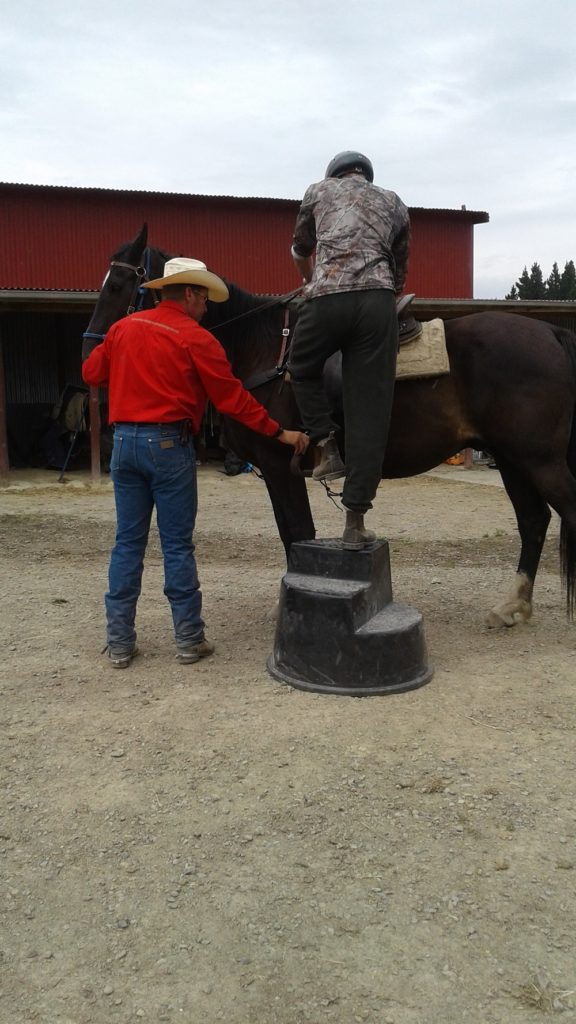
Mounting the Horse
Here are adventure horse trekking we prefer to assist our riders to mount the horses.
We are checking
- saddle is snugly fitted to the horse
- girth is tight enough
- saddle pads have not slipped
- saddle bags are evenly balanced
- lead rope is tide properly around horses neck
- rider is correctly mounted
- stirrups are the correct length
This gives you the opportunity to ask any questions that may be worrying you.
Physically Challenged Riders
Our team are more than happy to assist you if you have physical challenges that may affect your ability to mount and dismount the horse.
Please do let us know before you arrive so that we can prepare any additional equipment you may need.
Alternatively
if you have equip you want to bring to assist you please do ring to have a chat.
For our team, nothing is impossible so lets do it together.
Adventure Horse Team Mate
If you have any issues with the adventure horse teammate you have been allocated, please speak to the trail boss, we are more than happy to help.
